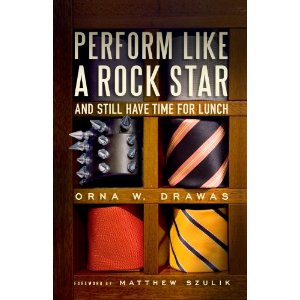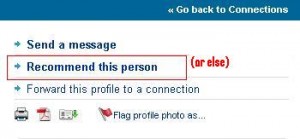The two previous parts in this series dealt with HR careers and how to get a job in HR and human resource career opportunities. Today I will talk about my own move into a new human resources management job (yippee!). :-)
My time in my first HR job taught me a lot about what I do and don’t want to do in my career. I can still remember talking with Jennifer McClure back at SHRM10 this summer about moving into a job that was a good fit for me. Then, a few weeks ago, I was talking with Dawn Hrdlica about the exact same thing. Both of them gave me the same advice, and I was finally able to do what I really wanted. They said:
You have to know where you want to go with regard to your career. Otherwise the opportunity might pass you by before you realize you wanted it.
So I thought really, really hard about what I wanted to do next. Yeah, I could just leap at any open position that came up, but it wouldn’t really be what I wanted. I made a short list of things that were highly desired in my next job.
- Small company
- Generalist role
- Opportunities for growth/experimentation
- Great culture
A few weeks ago I found out about an HR position with a small local startup company (there’s #1!). I applied, but it was over my head in that the person would wear many hats and assume multiple roles (#2). I didn’t expect too much, but it was a job I’d love to have. I contacted the hiring manager and learned more about the position. Â A big benefit of the job would be the opportunities (#3) it presented for growth and development. All I needed was the culture…
So, fast forward a few weeks, and I’m sitting there being interviewed by the president, vice president, and operations manager. We get down to the end of the interview, and I’m feeling really confident about the whole meeting. As a parting comment, I asked the president if there was one “must have” for the person who would take the position. He responded that the person had to fit into their culture well, because it was one of his highest priorities that they hire for culture fit (#4!). One of the coolest things about the interview was seeing the president scrolling through my blog while I spoke with the operations manager. :-)
A few short days later, I had an offer letter in hand and my resignation turned in at work. This thing was going to happen. On Monday, November 22nd, I start a new chapter in my career. I’ll be going to Pinnacle Solutions here in Huntsville, AL, and I am so thrilled about the possibilities ahead. I’m thankful to those who have helped me along the way and I can’t wait to see how much I learn and grow in this new position!
Other posts in the HR Careers series:
 With my affinity for using “rock” as a verb, you just know I would love reading the book Perform Like a Rock Star (and still have time for lunch) by Orna Drawas. Receiving this book from my friends at the Cadence Group couldn’t have happened at a better time, because my new HR job is requiring me to work smarter (and harder) than ever before. Where it fits, I added the page numbers below to help you find the good stuff.
With my affinity for using “rock” as a verb, you just know I would love reading the book Perform Like a Rock Star (and still have time for lunch) by Orna Drawas. Receiving this book from my friends at the Cadence Group couldn’t have happened at a better time, because my new HR job is requiring me to work smarter (and harder) than ever before. Where it fits, I added the page numbers below to help you find the good stuff. 
 How should employers and HR pros handle employee LinkedIn recommendation requests? I received this great question the other day, and I wanted to answer publicly because she’s definitely not the only one curious about the topic. Here we go:
How should employers and HR pros handle employee LinkedIn recommendation requests? I received this great question the other day, and I wanted to answer publicly because she’s definitely not the only one curious about the topic. Here we go: